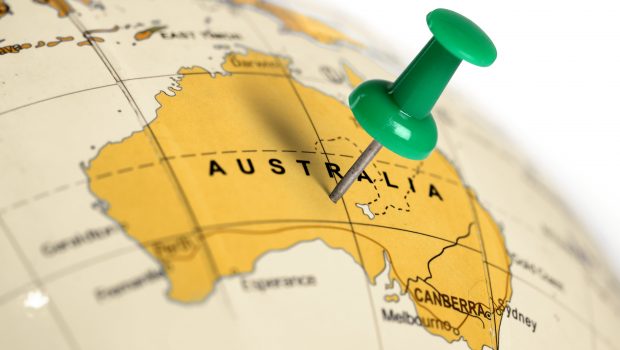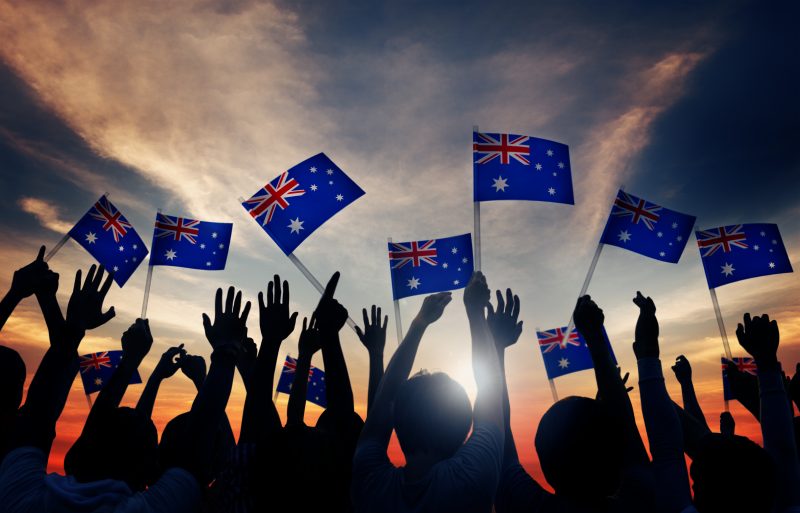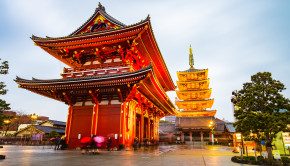Learn the Lingo – What is the Slang?
Fun fact, did you know that the word selfie came from Australia? Aussies love to have a good chat and to use local slang when they talk. Aussie slang is known as “Strine” and is a way of using certain phrases and words. You’ll find that Australians tend to talk very fast and pronounce words differently from the British or Americans. One of the first things you’ll learn about Australians is that they love to shorten words or add “ie” or “o” at the end of things. If you’re visiting for the first time or moving to Australia, this slang prepares you for a visit to the land down under.
G’day – Hello: The words good and day together form one of the most common words used in Australian greetings. It is usually followed by the utterance of ‘howzitgarn’ – How is it going.
Fair dinkum/ Genuine: The origin of this word is unknown but it probably derives from an English Midlands phrase meaning ‘work’ or the Chinese expression for ‘true gold’, popularised during the Gold Rush era. Today, the words add emphasis or authenticity to a sentence. For example, “this project is fair dinkum hopeless”.
Hit the frog and toad: This is not the same as “having a frog in your throat” which is a sore throat. Hitting the frog and toad means to get out and hit the road.
One for the road: A term used in a friend’s house who is hosting a party or when mates hang out for drinks. It means taking the last drink before you head home.
Cooee: An Aboriginal cry that tells people where you are if they’re within cooee range.
Have a go, you mug: A term for people who enjoy sporting events from budget seats. It’s used during football games or cricket games when the team looks lacklustre and the fans want to inspire the players to put in a better performance.
Bogan: When an Aussie call you a Bogan, it means an uncultured person or redneck. Signs include a missing tooth, a flannel shirt, homemade tattoos and excess of Aussie paraphernalia. They are mostly locals who love smoking marijuana.
Root: When you visit Australia and tell the locals you love rooting for their team, you could get weird looks. Root is a slang for sexual intercourse. Instead, use the word “barrack”. To describe someone who eats leaves and roots, use the word “wombat”.
Servo: A local may find it strange if you ask for the gas station. Servo is the lingua for petrol stations.
Stubbie holder: A slang for cooler or koozie. The stubbie holder is an insulated holder for a 37.5cl of beer.
Tradie: Nickname for tradesmen. Garbage collectors are called garbos, brickie for a bricklayer, sparky for an electrician, chippie for carpenter and trukie for truckdriver. A smoke break is called smoko and bottle shop is called bottlo.
Onya bike: A term used to tell someone off if you don’t want to talk to them. On the other hand, “hold your horses” means stay or wait a minute.
Oi for drongos and galahs: Noted as a national cry, it is said alongside Aussie, Aussie, Aussie and in conversations, used to show disagreement with someone else’s view or statement. It is also used to draw attention.
Slang words ending with -ye, -ie and -y: You probably already know the slang selfie because it’s a popular social media word. It is also a good tool for reaching a younger audience on platforms like Snapchat and Instagram. Popular Australian slang in this category include mushie – mushroom, prezzy – present, sunnies – sunglasses and Chrissie – Christmas.
Arvo: Derived from the word afternoon. Australians don’t like to use lengthy terms for words they can easily shorten. “Are you coming over for lunch this arvo (afternoon)?”
Bastards: A term used to refer to someone who doesn’t play fair. It was popularised by the Breaker Morant, the last Australian shot by a British firing squad. He screamed shoot straight, you bastards!
Cuppa: An abbreviation for a cup of tea. Drinking tea is part of Australian culture, with popular brands such as Bushell. When someone asks you if you would love a cuppa, they are asking if you want a cup of tea.
Footy: Footy doesn’t mean football but rugby. The country loves rugby so much they have four different types including Rugby League and Rugby Union.
Accadacca: Expect to hear a song from ACDC everywhere you go. ACDC is a most popular band in the country and Accadacca is the nickname.
Coppa: This refers to someone in law enforcement such as a police officer. It is rooted in the British word “copper” and the verb “to cop”. Steve Smith, the Group Marketing Manager of MovingtoAus explains that the original settlers in Australia were convicted English criminals, which is probably how the slang became popular.
Ambo: Slang for an ambulance or the ambulance driver (or both). It is used interchangeably, so don’t get confused when you hear someone calling the ambulance driver ambo, one minute and ambo for the vehicle the next minute.
Do the Harry: In 1967, former prime minister Harry Holt disappeared off Victoria’s coast. Some say he bolted from his responsibilities and others suggested he was abducted by a UFO or Chinese submarine. Whatever happened, his body was never found and the term is used to tell someone to leave or get out.
Thongs – Flipflops: If your new Australian friends tell you to wear thongs to the beach, don’t be alarmed. They probably want you to protect your delicate feet from the hot sand by wearing flipflops.
Barbie: A term that describes social gatherings as well as sausages. It is not related to the blonde-haired children’s doll with the same name.
Other Australian slang includes:
Chockers – Extremely full
Bludger – a lazy person
Pash – Passionate kiss
Whinge – whine
Bruce – An Aussie bloke
Crikey – Expression of surprise
Dunny – Toilet
Good on Ya – Good work
Maccas – McDonald’s
Bonza – Excellent
The Bottle o – A store that sells wine, spirits and beer
Conclusion
When using slang, make sure the situation or context is appropriate. Australians don’t write with slang as its informal. Avoid slangs in the workplace and be careful not to misuse it. If you’re looking to travel, applying for a visa or Aussie citizenship, these terms will come in handy.
- Learn the Lingo – What is the Slang? - August 20, 2018
- Teaching English In Turkey: The Best Cities To Teach In - June 28, 2017


















